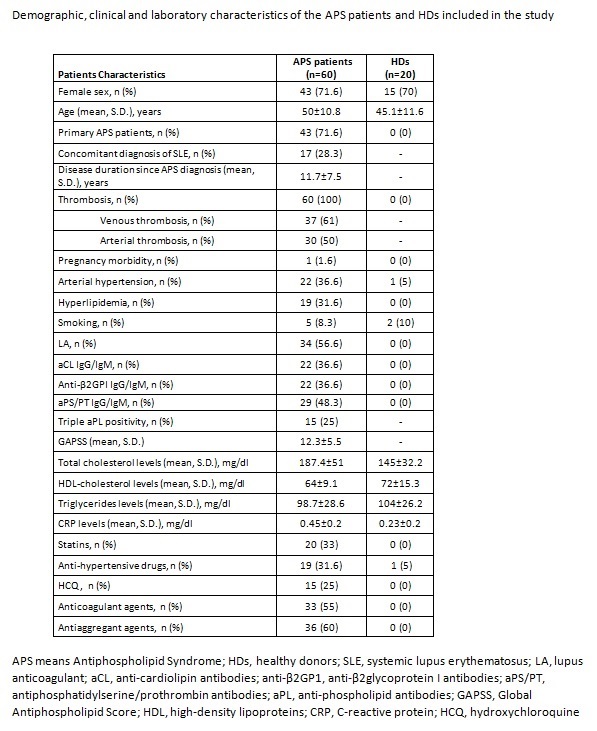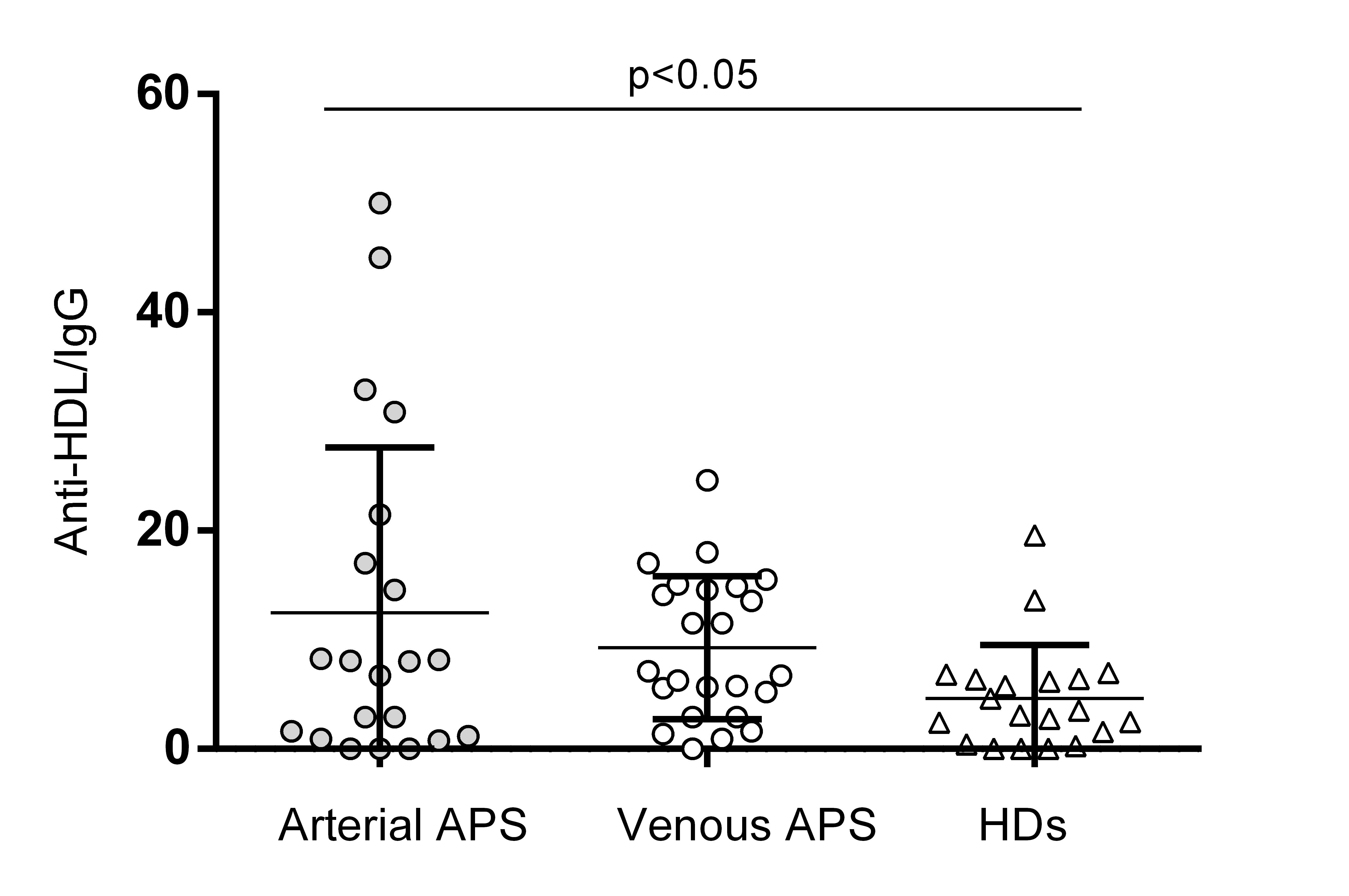Session Information
Date: Sunday, October 21, 2018
Session Type: ACR Poster Session A
Session Time: 9:00AM-11:00AM
Background/Purpose:
Reliable biomarkers for risk stratification in Antiphospholipid Syndrome (APS) are still lacking. Anti-high-density lipoproteins antibodies (anti-HDL) showed promising results in predicting the development of cardiovascular disease in autoimmune conditions. Nevertheless, the association between anti-HDL and clinical features of APS remains unclear.
Methods:
This cross-sectional study included 60 thrombotic APS patients and 20 healthy donors (HDs). Clinical data were retrospectively collected (Figure 1). Serum levels of total IgG, IgG anti-HDL antibodies and complete aPL profile were assessed, including lupus anticoagulant, anti-cardiolipin, anti-β2glycoprotein I, and anti-phosphatidylserine/prothrombin antibodies.
Results:
43 patients (72%) were primary APS and 17 patients (28%) had a concomitant diagnosis of autoimmune disease. Thirty APS patients (50%) presented previous arterial events and 37 (61%) venous events. Higher levels of IgG anti-HDL were found in APS patients compared to HDs [mean 46 (±70) vs. 14 (±13) AU, respectively; p <0.001], even after correcting for total IgG levels [mean 13 (±16) vs. 4.6 (±5), respectively; p <0.001]. No association with traditional cardiovascular risk factors, except for smoking habit (p <0.0001) was found. No differences in anti-HDL levels were observed between patients with primary APS and those with a concomitant autoimmune disease (p >0.050). Patients who experienced at least one arterial event had significantly higher levels of anti-HDL antibodies when compared to patients with history of venous thrombosis [mean 53 (SD ±94) vs. mean 34 (SD ±29), respectively; p =0.046] (Figure 2). This difference became stronger when adjusting for total IgG levels [anti-HDL/IgG: mean 13.1 (SD ±16.7) vs. mean 9.5 (SD ±6.6); p =0.007]. In addition, patients tested positive for aPS/PT (IgG/IgM) antibodies had significantly higher levels of anti-HDL antibodies [mean 53.1 (SD ±81.1) vs. mean 20.7 (SD ±17.6), p =0.045]. The levels of IgG anti-HDL antibodies were not influenced by pharmacological treatments (all p >0.050).
Conclusion:
Our study demonstrates that thrombotic APS patients have higher levels of IgG anti-HDL antibodies, supporting the emerging role of these autoantibodies in APS setting. Moreover, our findings suggest that anti-HDL represent a promising tool for risk management and assessment and a potential biomarker for lipid dysfunction and arterial thrombotic events.
To cite this abstract in AMA style:
Cecchi I, Radin M, Rubini E, Suárez A, Roccatello D, Sciascia S, Rodríguez-Carrio J. IgG Anti-High-Density Lipoproteins Antibodies Discriminate between Arterial and Venous Events in Thrombotic Antiphospholipid Syndrome Patients [abstract]. Arthritis Rheumatol. 2018; 70 (suppl 9). https://acrabstracts.org/abstract/igg-anti-high-density-lipoproteins-antibodies-discriminate-between-arterial-and-venous-events-in-thrombotic-antiphospholipid-syndrome-patients/. Accessed .« Back to 2018 ACR/ARHP Annual Meeting
ACR Meeting Abstracts - https://acrabstracts.org/abstract/igg-anti-high-density-lipoproteins-antibodies-discriminate-between-arterial-and-venous-events-in-thrombotic-antiphospholipid-syndrome-patients/


